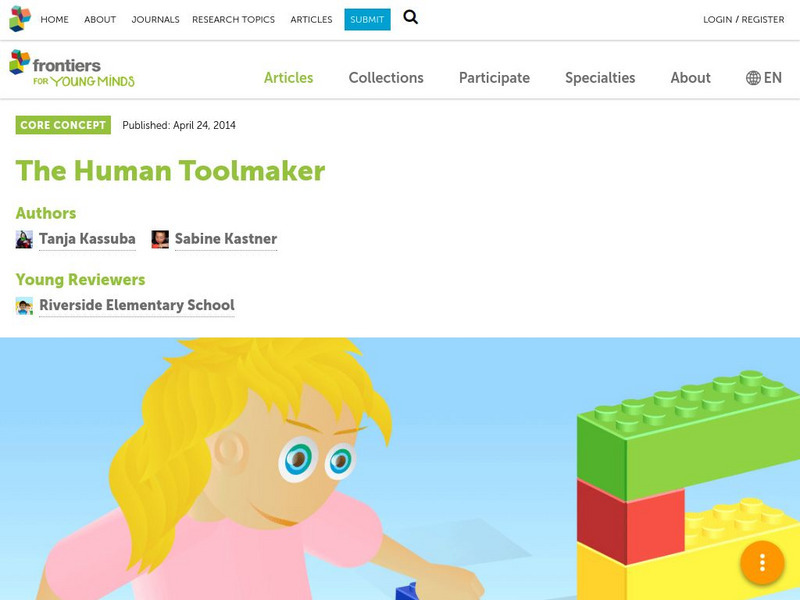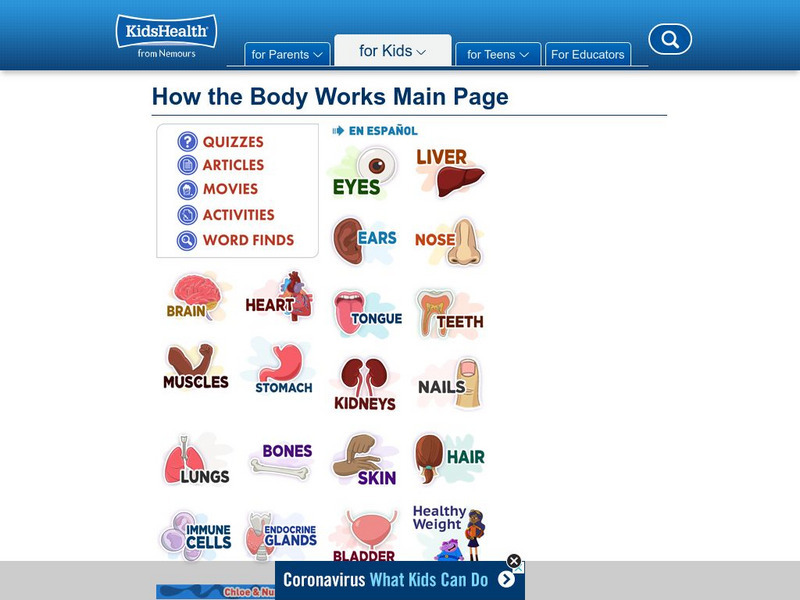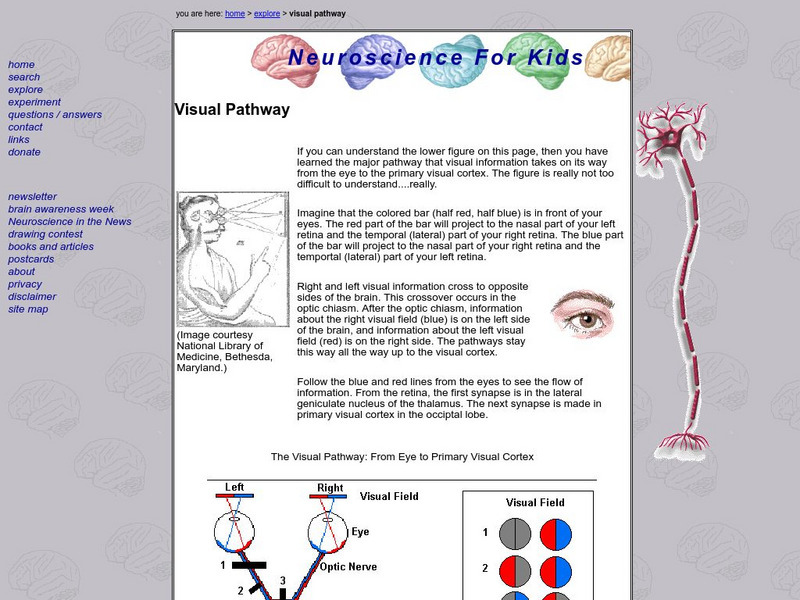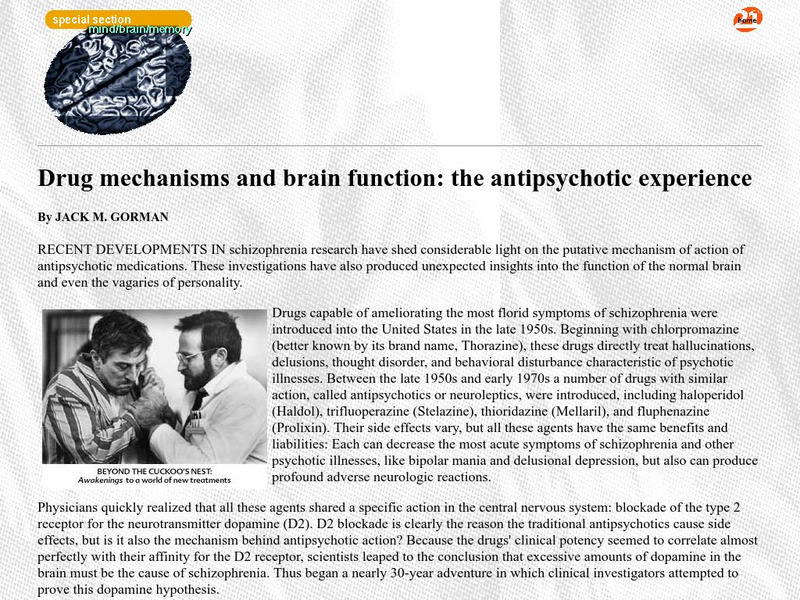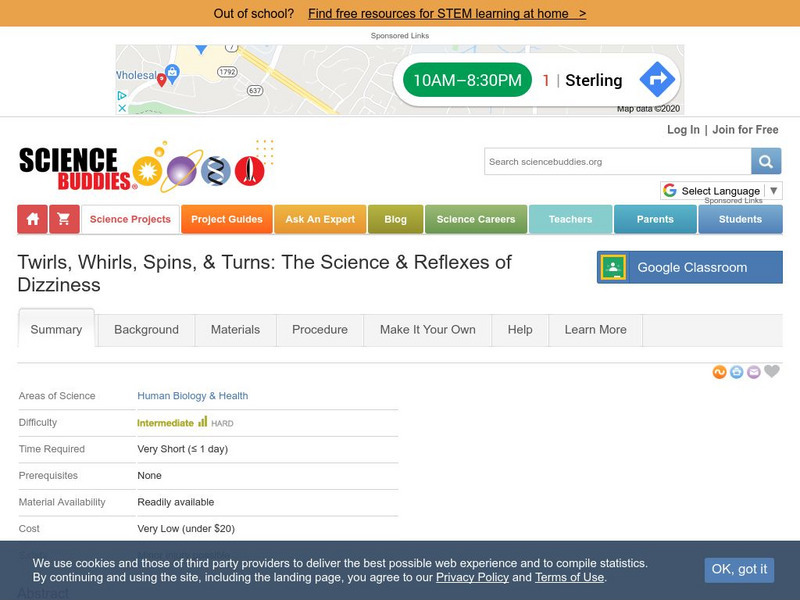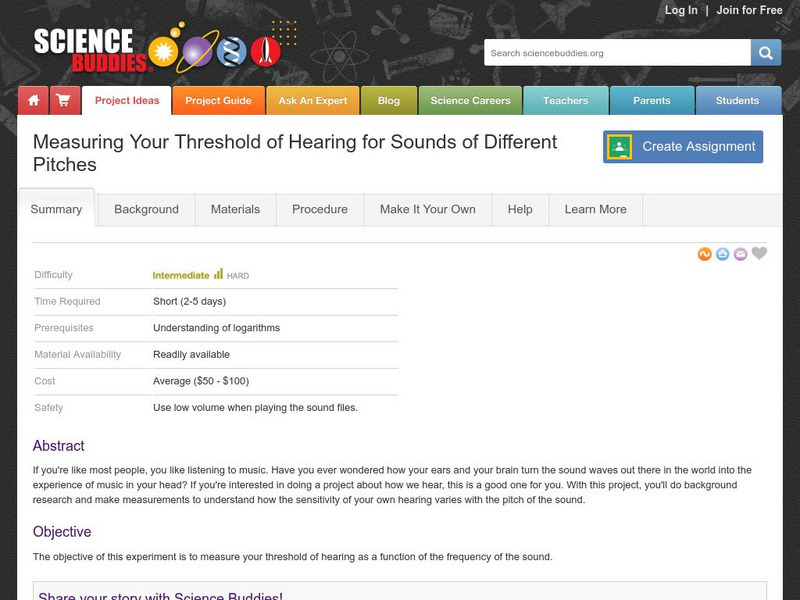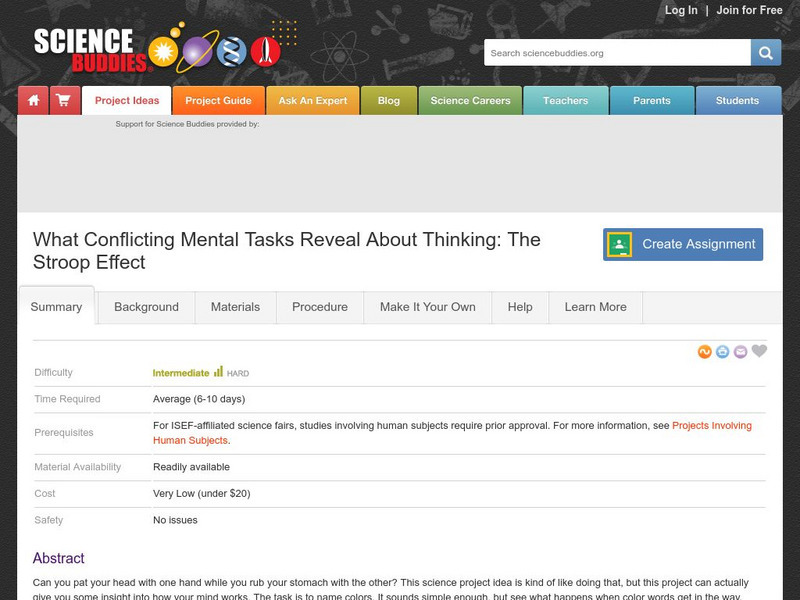Hi, what do you want to do?
Science Buddies
Science Buddies: Fast Food: Can Peppermint Improve Reaction Times?
Did you know that some teachers give their students a peppermint candy on state testing days? Is it to give the kids sweet-smelling breath? Or are the teachers hoping for something more on the important testing day? In this human biology...
Georgia Department of Education
Ga Virtual Learning: Anatomy and Physiology: Nervous System
Through informational text, interactive activities, self-checking practice problems, and more, students learn about the human nervous system.
ClassFlow
Class Flow: Human Body Systems
[Free Registration/Login Required] This flipchart introduces students to some of the major organs of the human body. Visual aids provide focused information on the heart and circulatory system as well as the brain and the eye.
PBS
Pbs Teachers: Scientific American: Science and the Brain
Describe the "mush-brain" effect, and test blindfolded subjects for their ability to identify items by smell. Explore the effect of biofeedback to help overcome illnesses, and attempt the mind-over-body techniques of visualizing and...
Frontiers Media
Frontiers: Human Toolmaker
Do you enjoy building airplanes, cars, houses, or robots with Lego blocks? Humans are the only animal species that can create complicated constructions from simple Lego blocks - our Lego building ability is "human-specific," since it is...
Science Education Resource Center at Carleton College
Serc: Digging for Fossils: Studying Fossils as Evidence for Human Evolution
As students dig for paper fossils, they make observations of brain size, teeth, hands, thumbs, trunks, pelvis, foot and big toes to determine characteristics of chimpanzees and humans. Then, they dig up and analyze a new fossil...
CPALMS
Florida State University Cpalms: Florida Students: Climbing Around the Hominin Family Tree
Identify basic trends in the evolutionary history of humans, including walking upright, brain size, jaw size, and tool use.
CK-12 Foundation
Ck 12: Life Science: 11.45 Nervous System Injuries
Learn about some injuries to the human nervous system.
Georgia Department of Education
Ga Virtual Learning: Psychology: Biological Foundations
Virtual learning course on human biology and brain function and how it affects our behaviors. Extensive collection of engaging materials, assignments, and activities for review.
PBS
Pbs: A Science Odyssey
Website for the PBS series "A Science Odyssey." Numerous opportunities to explore the people and discoveries of science.
Read Works
Read Works: Scales
[Free Registration/Login Required] An informational text about how the human brain organized past memories. A question sheet is available to help students build skills in reading comprehension.
CK-12 Foundation
Ck 12: Life Science: 11.43 Peripheral Nervous System
Understand the structure and function of the peripheral nervous system in the human body.
Curated OER
Kids Health: How the Body Works
A colorful, interactive site for kids and teens. A holistic approach to learning about your body, including topics such as feelings, drugs, injuries, and other health issues. Available in Spanish.
CK-12 Foundation
Ck 12: Life Science: Central Nervous System
[Free Registration/Login may be required to access all resource tools.] The central nervous system (CNS) is the largest part of the nervous system. It includes the brain and the spinal cord. The bony skull protects the brain. The spinal...
University of Washington
Neuroscience for Kids: Reflexes
Site provides interactive activities to use in the classroom to test one's reflexes. Also includes more reaction time experiments as well as links to more fun activities.
University of Washington
University of Washington: Central Visual Pathways
Explore the world of central visual pathways. The visual pathway leads from the eye to the primary visual cortex. There is a detailed visual description of this process. Check it out.
Columbia University
Drug Mechanisms and Brain Function: The Antipsychotic Experience
Article on the effect of certain drugs on human personality. Article's foundation is in anti-psychotic research.
Science Buddies
Science Buddies: Twirls, Whirls, Spins, & Turns: Reflexes & Dizziness
Tilt-A-Whirls, Merry-Go-Rounds, Spinning Tea Cups. Just the thought of these rides is enough to make someone dizzy, or queasy. Learn about spins, turns, and the mixed signals that fire in our brains when the sensation of dizziness takes...
Science Buddies
Science Buddies: Measuring Your Threshold of Hearing
How your ears and your brain turn the sound waves out there in the world into the experience of music in your head, remains a mystery to many, but yet we all experience and even enjoy sounds and music. If you're interested in doing a...
Science Buddies
Science Buddies: Think Fast: Do Video Game Players Have Faster Reaction Time
Are you an avid video game player? Do you think this helps you have fast reaction times? This Science Buddies science project lays out an experiment to help you test your hypothesis. The Science Buddies project ideas are set up...
Other
Marine Biological Laboratory: Why Study Marine Organisms for Biomedical Research
Descriptions of various research projects using marine organisms that have direct impact on medical research. The resource has a perspective on how medicine makes progress.
Curated OER
Artists' Rendering of the Left and Right Hemisperes of the Brain
Artists' rendering of the left and right hemisperes of the brain.
Science Buddies
Science Buddies: What Conflicting Mental Tasks Reveal About Thinking
Can you pat your head with one hand while you rub your stomach with the other? This experiment is kind of like that, but it can actually give you some insight into how your mind works. The task is to name colors. It sounds simple enough,...










